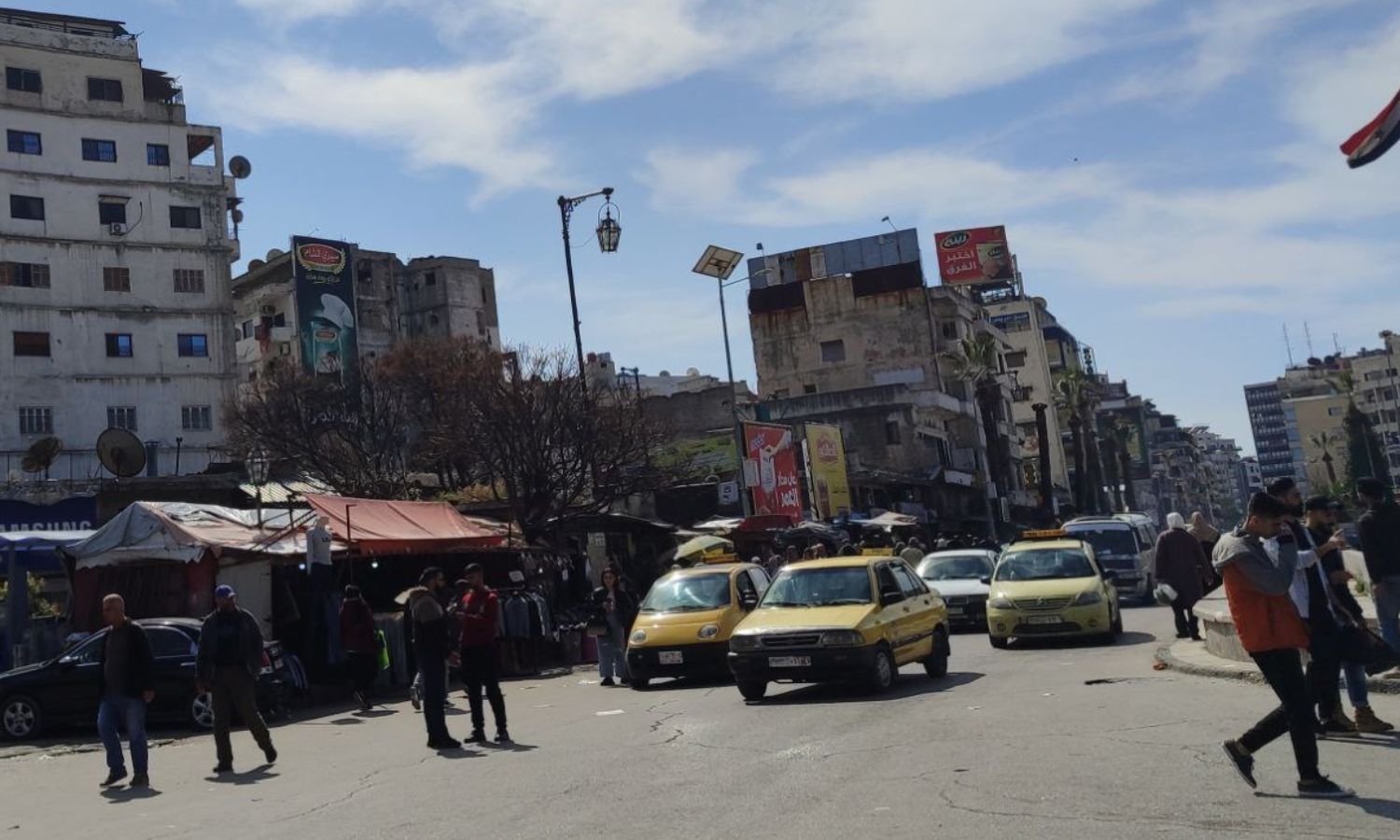



Latakia – Linda Ali
Residents of Latakia often encounter painful scenes of elderly men and women barely able to walk, struggling to get off the minibus in front of a government hospital, due to the high cost of taxis, and this applies to most of the city’s and its countryside’s inhabitants.
The starting fare for a taxi within the city begins at 10,000 Syrian pounds for distances not exceeding three kilometers and increases depending on the distance and the passenger’s ability to bargain with the taxi driver.
For example, the taxi fare from al-Zuqzuqaniyah neighborhood at the city’s entrance to the National Hospital near the port reaches 25,000 Syrian pounds in the morning and rises to 40,000 Syrian pounds in the evening.
The fares are high for residents, as the minimum government salaries in areas under the Syrian regime are about 279,000 Syrian pounds with one dollar equaling 14,000 Syrian pounds, and this amount does not cover the simplest of needs.
The last time Hanan (32 years old), a housewife living in the suburb of Bisnada, used a taxi was almost a year ago, when she remembers paying 4,000 Syrian pounds for a distance of no more than five kilometers because it was raining and she was forced to take her infant child to the doctor.
The woman said that today she wouldn’t dare to hire a taxi no matter how stormy the weather is; she uses the buses that do not charge more than 1,000 Syrian pounds within the city.
As for Hana (28 years old), who works in an office near the Finance Directorate, she does not consider using a taxi at all, to the extent that she had to walk more than once to reach her house in al-Ramel al-Shemali neighborhood, which is about four kilometers away.
She mentioned that her salary, which does not exceed 200,000 Syrian pounds, does not allow her to travel by taxi, not even once a month.
The price of a liter of regular gasoline is 10,500 Syrian pounds, and public car owners get 25 liters every ten days, i.e., 75 liters per month, which is insufficient for their work, so they are forced to buy gasoline from the black market at a price between 14,000 and 17,000 Syrian pounds, which they say causes the fare to rise.
Abu Ahmad, a 45-year-old taxi driver working in the city for more than eight years, said that he never experienced such stagnation before, as the majority refrain from using taxis. They often bargain with the driver over the fare before getting into the car.
He added that he might spend his day using up gasoline and moving from place to place without getting a customer, while work increases slightly during holidays and heavy rains, as people have no choice but to use taxis.
He mentioned that people think that the costs of running a taxi are limited to gasoline only, but repairing even the smallest fault in the car now costs hundreds of thousands of pounds, while a driver’s daily income does not exceed 70,000 pounds at best after accounting for the cost of gasoline. He has to save from the 70,000 pounds about 20,000 pounds for emergency repairs and oil changes, leaving him with 50,000 pounds, according to the driver who asked, “What does this amount suffice for today?”
Residents of Latakia and across Syria are living in a deteriorating economic and living reality, with the average cost of living in regime-controlled areas exceeding 10.3 million Syrian pounds, and the minimum cost of living 6.5 million pounds. (The minimum salary is about 279,000 pounds).
Suburban and rural residents are most affected by the rise in taxi fares. For example, the fare from Tishreen University at the entrance of Latakia city to Saqoubin, which is considered one of Latakia’s suburbs, is about 50,000 pounds on average, and this applies to other areas such as Sanjwan, Bexsa, and others.
The fares to rural areas are not less than 150,000 pounds for the nearby countryside that is no more than eight kilometers away from the city and rise to about 500,000 pounds for remote rural areas such as Slanfeh or Kasab and other countrysides.
Despite the lower fares in public transport buses compared to private cars, it is not a good option, as many bus drivers take advantage of peak times and congestion to ask for higher fares, and incidents of theft (pickpocketing) inside the buses are common, due to the severe overcrowding.
if you think the article contain wrong information or you have additional details Send Correction